Travel Sabbatical 2015-2016
-
Plymouth, Massachusetts
Posted by Gayle Geisler on 11/11/2015Enjoy this walk through Historic Plymouth and Plimoth Plantation to learn about the Pilgrims. Be sure to hover over the pictures for answers to the questions and additional information. When you get to the end, click on the links to enjoy additional real life pictures, engaging activities collected throughout my travels, and websites offering virtual videos of places visited, additional facts, and other interactive activities for students, teachers, and parents.
HISTORIC PLYMOUTH
Who were the Pilgrims?
Where did they come from?
Why did they come?
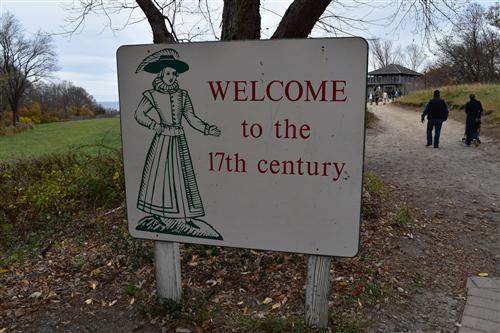
Our first stop in the Boston Area was Plymouth, Massachusetts. What a great way to celebrate Thanksgiving! On our very first tour through Historic Plymouth, we learned about the strong family morals and values the Pilgrims brought with them, and how important those basic values were and still are today to building a strong society. Leo, our tour guide told the children in our group a story about standing up to bullies, and we learned how the first governing document created and signed by the Pilgrims started a basic form of democracy with each member contributing to the welfare of the community. Family and education were very important to the Pilgrims. I have an even deeper appreciation for what the men, women, and children believed in, fought for, and lived through during that time period. They helped set the foundation for our great nation!
How did they get here?
When did they come?
What did they go through?

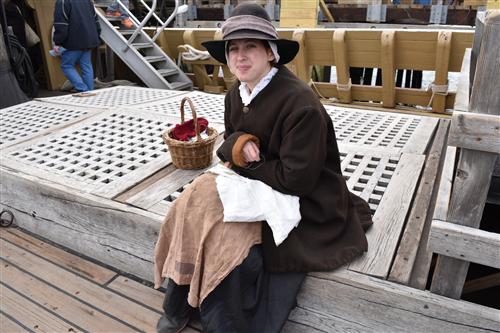
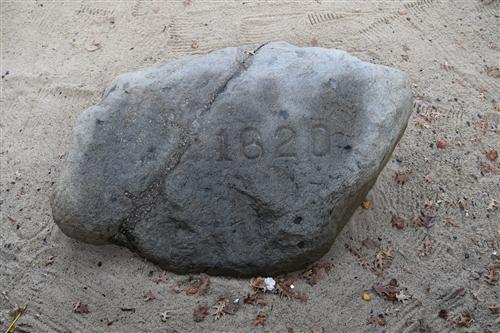
At the end of this entry on Plymouth, Massachusetts, you can click on interactive websites to learn more about "The Journey of the Mayflower" and the type of ship that brought the 102 Pilgrims, their livestock, and the ship's crew to the New World.
Why did they choose Plymouth?
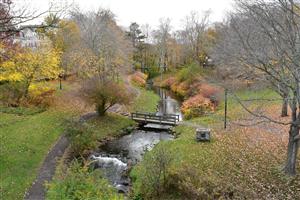
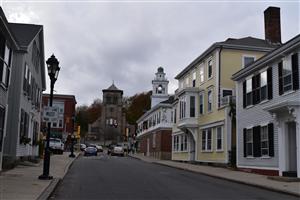
This is the path by which the Pilgrims came up from the waterfront.
It is the site of the original settlement.
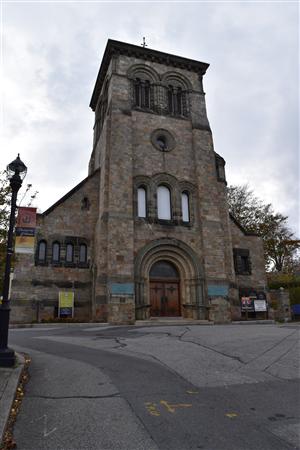
This is the First Parish Church located in the center of Town Square at the head of Leyden Street. It is the birthplace of religious freedom in America, and a bell cast by Paul Revere hangs in the belfry.
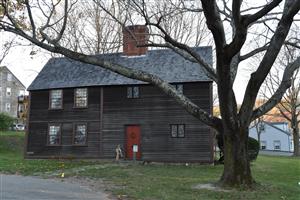
This is the only house standing in Plymouth where Mayflower passengers are known to have lived.
Do you know what was made here, and how it all works?
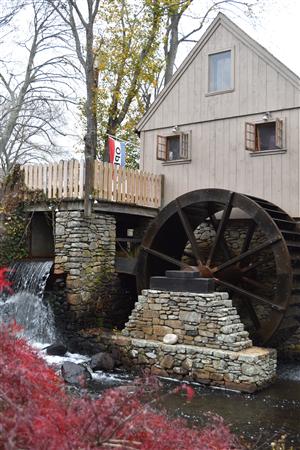 Can you find Ms. Geisler??
Can you find Ms. Geisler?? 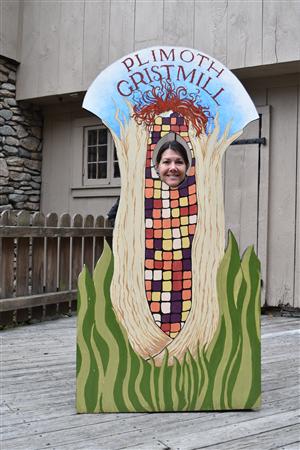
Here is a re-creation of Plymouth's first grist mill built in 1636 by John Jenney - the beginning of industry and capitalism in America!! You can discover how the Pilgrims used the power of water and mill stones to grind flint corn into cornmeal. Rumor has it that this will be the best cornmeal you'll ever taste!
This statue is dedicated to the English women whose courage, fortitude, and devotion brought a new nation into being.
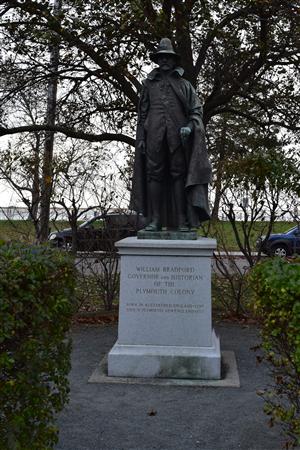
This Pilgrim served as the
Governor of Plymouth Colony -
Five times!!!
Do you know why?
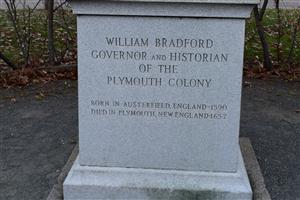
Who is this Indian of the Wampanoag Tribe who never seriously violated his pact with the Pilgrims for nearly 40 years?
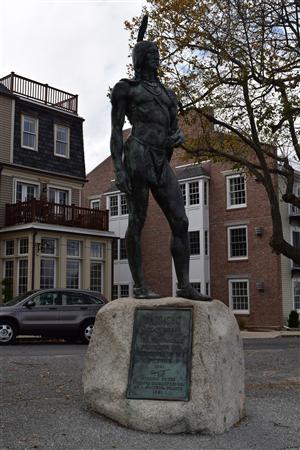
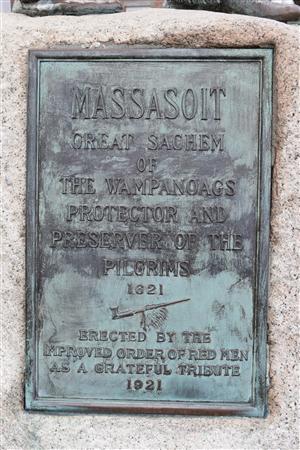
The Pilgrims met him through the friendship of Samoset, the first Indian to welcome the Pilgrims to Plymouth. A simple peace treaty was made with him to protect the rights of the Indians and the Pilgrims.
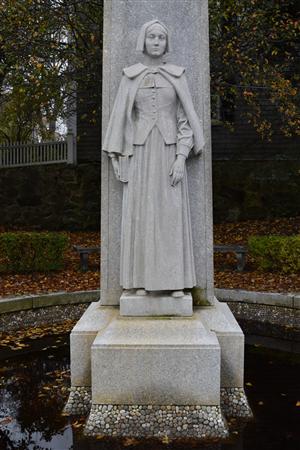
This memorial was erected in memory of the heroic women of the Mayflower.
Do you know what this is?
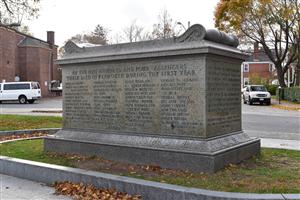
The burial of Pilgrims who died the first winter was done in secret to hide the numbers of dead from the native people. Nearly one half of the Pilgrims lost their lives from the elements and disease their first winter.
Do you know who is buried here?


This is the site of the first meetinghouse, fort, and watchtower.
Governor William Bradford and other Pilgrims are buried here.
If you are in Historic Plymouth on a Friday in August, you can see the citizens in Pilgrim costumes re-enact a trip to church by the survivors of the settlement's first winter by walking from Plymouth Rock to Burial Hill.
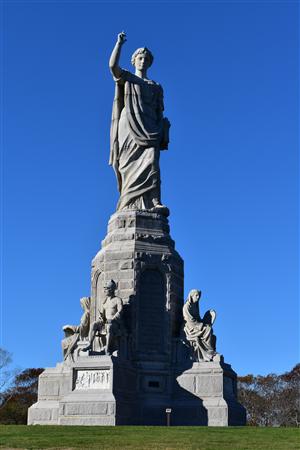
This monument is dedicated to the four virtues that brought the Pilgrims to the New World: Morality, Law, Education and Liberty.
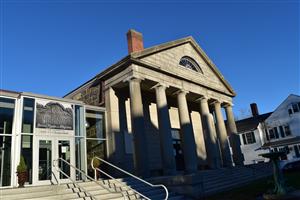
Here you can touch an authentic piece of Plymouth Rock and see actual possessions of the Pilgrims including William Bradford's Bible and Myles Standish's sword.
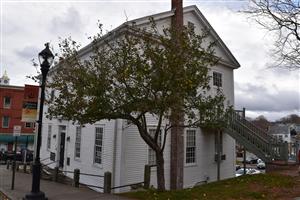
This oldest wooden court house in America is a museum of early Plymouth today.

Thank you, Leo, for such an outstanding in-depth tour that led to an even deeper appreciation for the Pilgrim's influence in the development of our great nation!!
To end our first day at Plymouth, Massachusetts, my husband and I enjoyed a 1627 Harvest Dinner with the "Pilgrims" at Plimoth Plantation. We sat at a table with eight other people, including two fourth-graders. Various dishes of the meal were set in the center of the table to be shared. We were entertained with psalms and songs and sang a couple of rounds. The food was delicious, and we had much fun asking the Pilgrims questions as we ate. We even ate with our fingers!!!
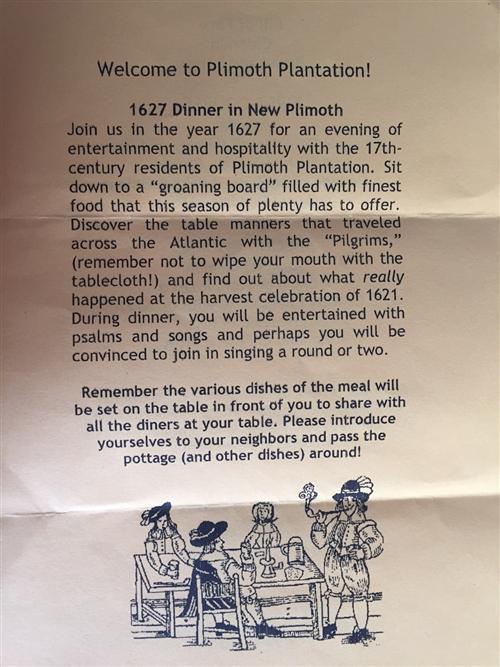

PLIMOTH PLANTATION
Our second stop in the Boston Area was Plimoth Plantation where history really does come alive. The people there have learned and taken on the role of one of the actual Pilgrims or the Wampanoag. You will feel transported back in time as they tell you about their new lives in Plymouth Colony at the 17th-century English Village or how they lived along the coast at the Wampanoag Homesite. It was exciting to be there while there was filming going on for the PBS Documentary "The Pilgrims". When you visit the Mayflower at Plymouth Harbor, the Pilgrims will tell you all about their journey on the Mayflower. At the Plimoth Grist Mill you will see the water wheel turning and watch the corn grinding. If you visit during the spring you will see thousands of herring that travel from the sea to spawn there.
WELCOME!!!
FIRST STOP - A WAMPANOAG HOMESITE
A Wampanoag bark-covered long house.
A Wampanoag mat-covered house.
Wampanoag People
SECOND STOP - 17th CENTURY ENGLISH VILLAGE
Pilgrim House of Worship
Myles Standish
Main street leading to the water. Do you remember it's name?
Pilgrim Houses
Plowing and Gardening
Pilgrim Men and Women at Work
Third stop - The Plimoth Grist Mill
LAST STOP - THE MAYFLOWER
Inside the Mayflower
After meeting, talking with, and learning about these magnificent people, I couldn't resist signing the Mayflower Compact.


FINAL THOUGHTS
My husband and I had so much fun learning about the Pilgrims and the Wampanoag by visiting and experiencing Plimoth Plantation and Plymouth, Massachusetts firsthand. It is my hope that the resources I gathered and am sharing with you will allow you to enjoy learning about these amazing courageous people in a fun way, too. My final wish is that you may also develop a deep respect and admiration for their faith, bravery, strength, and determination and for what our nation has gained through them.
Click here for a fun, engaging, interactive website created by Plimoth Plantation. Students of all ages, including teachers and parents, can learn how to talk like a Pilgrim, become a history detective to figure out what really happened "The First Thanksgiving", design and print your own Thanksgiving exhibit panel, or read, color, and learn all about the Pilgrims and the Wampanoag. There are virtual field trips, recipes, stories, timelines, historical essays for kids, and games to make at home. There is information on researching your family's history to create a family tree and profiles of the passengers on the Mayflower to enhance research.
Click here for another engaging and fun-filled site by Scholastic to learn about "The First Thanksgiving". They have partnered with Plimoth Plantation to create additional virtual field trips, and you can enjoy hearing and learning from the people my husband and I met and talked with while visiting there. There are video tours and slideshows on the Mayflower, Plimoth Plantation, a Pilgrim Village, and a Wampanoag Homesite. There are historical fiction letters written by a Pilgrim girl and a Native American boy with audio, timelines, and information on the feast. You can take the journey on the Mayflower, and compare and contrast the daily life of the Pilgrims and the Wampanoag. For teachers, there are Common Core-Aligned Teacher's Guides, Thanksgiving Printables, Reader's Theater Ideas, and a Thanksgiving Vocabulary Guide.
Click here for a list of additional resources for all levels of instruction gathered during my trip that you may borrow. Please contact me at ggeisler@northallegheny.org. Resources include Teacher Manuals, informational books, novels, DVDs, maps, brochures, postcards, bookmarks, and other activities for students, teachers - and parents.
Click here to enjoy many additional pictures and short videos taken at Plymouth Colony and Plimoth Plantation while visiting Plymouth, Massachusetts, November 2015. To use the pictures and/or videos to create interactive computer activities and /or to enhance the instruction of our students at North Allegheny, please contact me at ggeisler@northallegheny.org.


